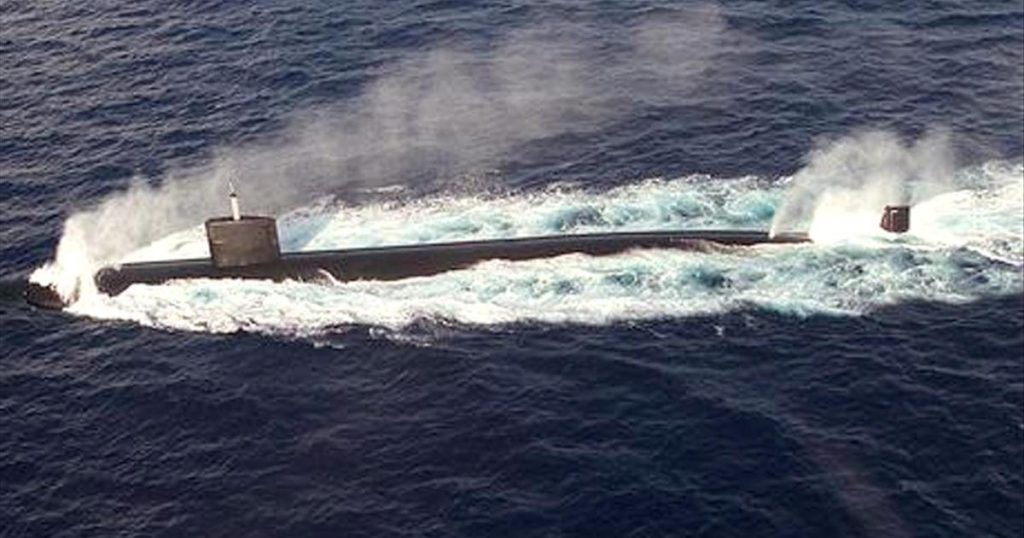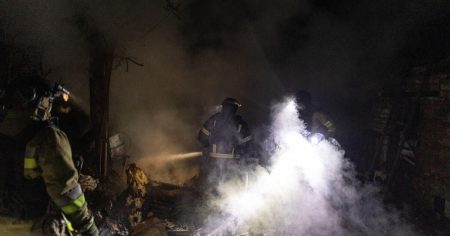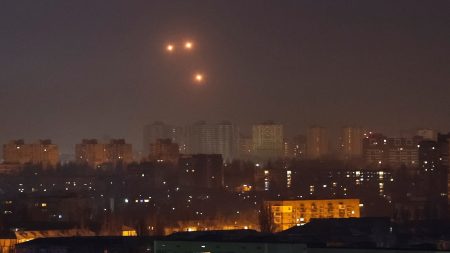North Korea Accuses the US of a "Hostile Military Act" Amid Tensions in the Korean Peninsula
North Korea on Tuesday lashed out at the United States, accusing it of a "hostile military act" after a U.S. Navy submarine docked in South Korea to replenish supplies. The North Korean defense ministry expressed grave concern over what it described as a dangerous and provocative action, warning that such moves could escalate tensions in the region and potentially lead to an armed conflict. The statement, carried by the state-run KCNA news agency, called on the U.S. to cease its "provocations" and criticized Washington for ignoring Pyongyang’s security concerns. The incident has further strained relations between the two nations, which have long been at odds over North Korea’s nuclear ambitions and the U.S. military presence in the region.
The USS Alexandria’s Visit to South Korea Sparks Tensions
At the center of the controversy is the USS Alexandria, a nuclear-powered fast-attack submarine equipped with Tomahawk missiles and MK48 torpedoes. The submarine arrived at the Busan naval base in South Korea on Monday, marking the second visit by a U.S. submarine to the port city in recent months. The last such visit occurred in September 2023 when the USS Vermont docked at the same base. According to the U.S. Navy, the USS Alexandria is a 360-foot submarine designed for speed and stealth, making it a critical asset for the U.S. military in the Asia-Pacific region. However, North Korea viewed the visit as a deliberate provocation, with the defense ministry spokesperson emphasizing that the frequent appearance of U.S. strategic assets in the region is a cause for concern.
North Korea Warns of "Armed Conflict" and Vows to Defend Its Security
North Korea’s defense ministry issued a stark warning, stating that the U.S. action could push the region into an actual armed conflict. The spokesperson for the ministry reiterated Pyongyang’s commitment to defending its security and interests, noting that North Korea’s armed forces are closely monitoring the situation and are prepared to use "any means" necessary to maintain regional peace and stability. The statement also underscored the importance of developing North Korea’s self-defense capabilities, particularly its nuclear program. Leader Kim Jong Un has repeatedly vowed to continue the program "indefinitely," despite international sanctions and diplomatic isolation.
North Korea’s Nuclear Program and Recent Missile Tests
North Korea’s nuclear weapons program has long been a major point of contention with the United States and its allies. The program has been a source of frustration for Washington, which has imposed numerous sanctions on Pyongyang in an effort to curb its nuclear ambitions. Despite these measures, North Korea has continued to develop its capabilities, conducting several missile tests in recent months. Last month, the regime claimed to have tested a new hypersonic intermediate-range missile designed to strike targets in the Pacific. Additionally, South Korea’s military reported detecting a North Korean missile launch that traveled 685 miles before landing in waters between the Korean Peninsula and Japan. These developments have heightened tensions in the region and raised concerns about North Korea’s growing military capabilities.
The U.S.-North Korea Relationship: A History of Tensions and Failed Diplomacy
The relationship between the United States and North Korea has been marked by decades of tension, with moments of tentative diplomacy often offset by periods of heightened animosity. During his first term, former President Donald Trump engaged in a rare series of meetings with Kim Jong Un, a move that was seen as a departure from the traditional U.S. approach to dealing with the regime. However, a summit in Hanoi in 2019 ended in failure, as the two sides could not reach an agreement on sanctions relief and the terms under which North Korea would relinquish its nuclear program. More recently, North Korea has expressed irritation over comments made by top U.S. officials, including Senator Marco Rubio, who referred to the regime as a "rogue state" in a radio interview. Pyongyang has made it clear that it will not tolerate such language, further straining relations with Washington.
The Broader Implications for Regional Security and U.S.-North Korea Relations
The USS Alexandria’s visit to South Korea and North Korea’s subsequent accusations have significant implications for regional security and the broader U.S.-North Korea relationship. The U.S. military presence in South Korea is a key component of Washington’s strategy to maintain stability in the Asia-Pacific region and deter North Korean aggression. However, Pyongyang views the presence of U.S. strategic assets, such as nuclear-powered submarines, as a direct threat to its security and sovereignty. The incident highlights the delicate balance of power in the region and the challenges of managing the complex and often volatile relationship between the United States and North Korea. As tensions continue to rise, the international community will be closely watching for any signs of escalation or de-escalation in the coming weeks and months.















